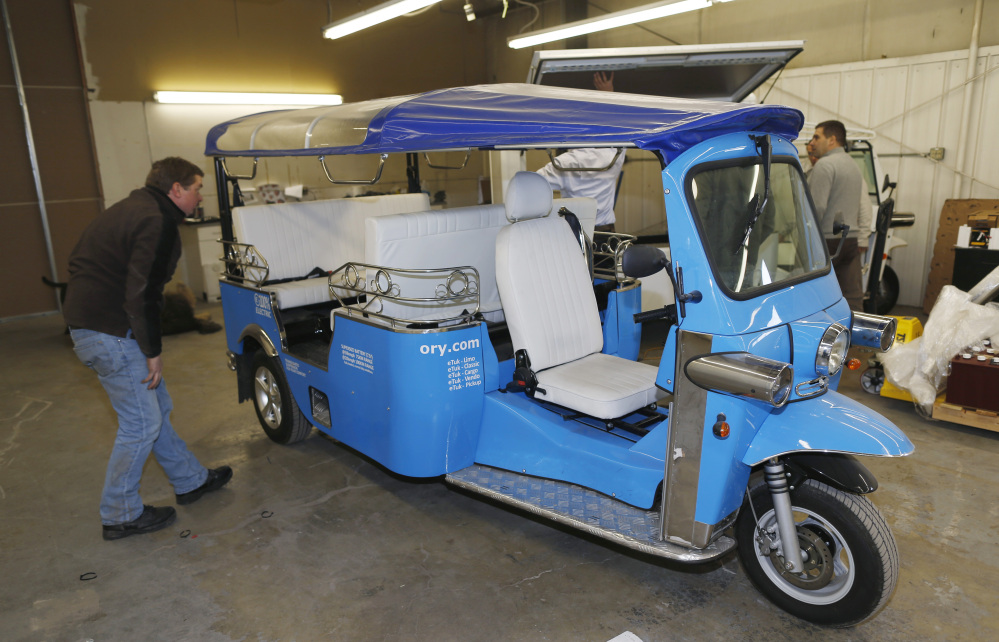DENVER — They’re ubiquitous in Asia, swarming the bustling streets of Bangkok, New Delhi and Beijing.
Now, a company that manufactures tuk-tuks – the three-wheeled motorized rickshaws that have moved the masses for more than a century and go by many other names in Asia, Africa and Latin America – aims to make inroads in the United States.
The Tuk Tuk Factory, based in Amsterdam, has signed a licensing agreement with Denver-based eTuk USA to allow the company to manufacture and sell an electric version of the vehicle.
The company’s founders hope the eco-friendly vehicles, a far cry from the loud, pollution-spewing versions common in Asia and South America, will become the next hip mode of transportation for urban dwellers and tourists across the country.
It’s too soon to know if Americans will embrace tuk-tuks, but Michael Fox, director of sales and marketing for eTuk USA, says the company has been selling the vehicles to individuals, marketing companies and food vendors for $16,950 to $25,000, depending on how they are customized.
The three partners’ other company, eTuk Denver, launched a call-and-demand shuttle service in downtown Denver after receiving approval from the Colorado Public Utilities Commission, which regulates for-hire transportation services.
The service is the latest to enter an increasingly crowded field of transportation options that includes pedicabs, ride-hailing services such as Uber and Lyft, and golf-cart taxis.
Fox is banking on the tuk-tuk’s open-air design to help it stand out.
But like ride-hailing services, the tuk-tuk has faced some pushback from a handful of cab companies and other shuttle operators and raised concerns about the vehicles’ safety.
Terry Bote, a commission spokesman, said several cab and shuttle companies were successful in restricting where the tuk-tuks can operate, what types, how many vehicles can be used and how many passengers each can carry. The tuk-tuks operate mostly in a restricted downtown area and are banned from providing scheduled service to the nearby Denver Broncos football stadium, a lucrative destination for the competition.
Even with the restrictions, Fox said his service can complement Denver’s bus and light rail systems.
He noted the “last-mile concept,” a term that has been used by urban planners to describe the difficulty of getting people from places like a railway station or a bus depot to their final destination.
The concept originally applied to suburban areas, but also is relevant when studying how people complete their trips in downtown areas, said Carolyn McAndrews, an assistant professor of design and planning at the University of Colorado Denver.
“Everybody has the last-mile problem, and they solve that problem by walking or we drive our cars,” she said.
But McAndrews also said the market is ripe for new modes of transportation like tuk-tuks to close that gap.
“To be competitive with cars, you have to make the point-to-point as convenient as possible,” she said.
Send questions/comments to the editors.



Comments are no longer available on this story